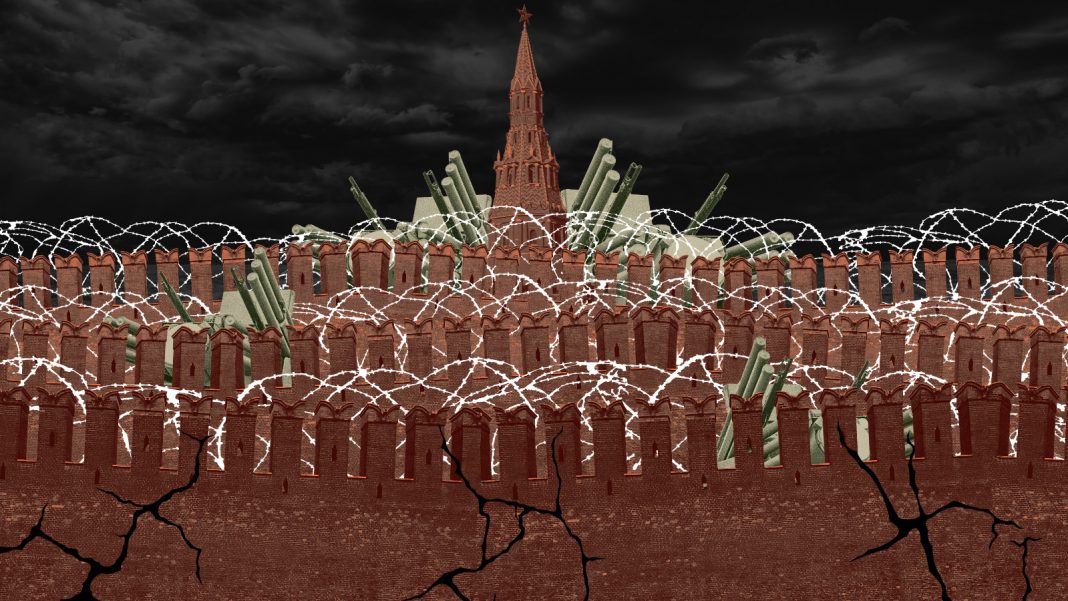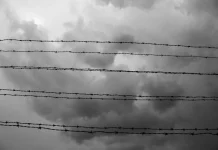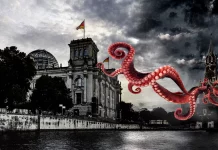Late last week, the Kremlin presented a new Russian Foreign Policy Concept and its contents quickly became the talk of the town for pro-Kremlin information manipulation and disinformation outlets. A veritable exercise in absurdity, the new concept barely stops short of stating that black is white. Or, in the Orwellian terms more familiar to the Kremlin, that ‘war is peace’.
Let’s have a look at what pro-Kremlin outlets had to say about this new concept. The common theme echoed by everyone in the pro-Kremlin disinformation ecosystem was praising the concept for identifying the United States as the main enemy of Russia. Of course, Russian disinformation has been vilifying the West, and particularly the US, in their rhetoric for years.
First among equals
One of the more absurd notions touted by pro-Kremlin disinformation outlets is the claim that Russia respects the sovereign equality of states. Russia’s brutal war of aggression in Ukraine says otherwise. The pro-Kremlin disinformation ecosystem also used the concept to push the false narratives of a hybrid war being waged against Russia, doubling down on the idea of Russian supremacy and asymmetric responses and ‘exposing’ the misdeeds of the ‘collective West’.
There were also considerable attempts to use the new Russian foreign policy concept to support the disinformation narrative of Russia as a peacemaker and a victim in its own war of aggression against Ukraine. The victimhood card was played up even more to conjure an image of an embattled and entrenched Russia, its own sovereignty at stake. Again, we have seen the disinformation narrative of Russia’s ‘existential struggle’ many times before.
Curiously, despite the new concept describing Russia’s foreign policy as ‘peaceful, open, predictable, consistent, pragmatic’, Russian commentators are still keen to employ previously observed and threatening nuclear rhetoric while seeking to justify the Russian decision to station nuclear weapons in Belarus.
‘Fortress Russia’
Regardless of the lofty phrasing in the concept, the Russian disinformation ecosystem’s take on it showed a clear doubling down on a Cold War-like siege mentality, drawing ever more upon ‘us versus them’ rhetoric.
In line with this siege mentality, of course, the pro-Kremlin disinformation ecosystem also had to react to the historic moment of Finland joining NATO. And yet, the reactions were a lot less boastful and menacing than a few months ago. Of course, pro-Kremlin outlets tried to maintain the case that Finland’s accession to NATO encroaches on Russian interests, but the rhetoric was relatively lacklustre and tepid.
The diminishing ability to exert force and impose Russia’s positions on all its neighbours may be yet another reason why the Kremlin has sought solace in the idea of a forever-besieged ‘Fortress Russia’.
Instrumentalising martyrdom
On a different topic, pro-Kremlin disinformation outlets flocked to pay their respects to one of their own – Vladlen Tatarsky, killed in a bomb explosion in a St. Petersburg café. Pro-Kremlin outlets have weaponised victimhood on a state level, so they were also quick to martyr the prolific pro-Russian war blogger on an individual level. His work propagandising pro-Kremlin disinformation about the war was depicted as high-standard journalism and his demise quickly characterised as a terrorist attack against the freedom of press and media. Like clockwork, pro-Kremlin commentators immediately accused Ukraine of masterminding the attack. In many ways, pro-Kremlin disinformation framing this incident was reminiscent of the case with Darya Dugina.
Notably, the same kind of respect and piety for the unassailable work of journalists was not applied when Wall Street Journal reporter Evan Gershkovich was arrested by the FSB on trumped-up charges of espionage. Instead, the Kremlin’s mouthpieces were quick to smear the arrested journalist and praise Putin’s brilliance in creating leverage to negotiate with the US.
Russia has been tightening the information space by censoring and harassing independent media outlets for years, but an outright assault on a foreign correspondent is a new low even for the Kremlin.
The Kremlin as protector
Finally, if, according to the new Russian foreign policy concept, the Western world outside is a hostile and godless place, then within the walls of ‘Fortress Russia’ everyone is protected and cared-for. Children are evacuated from war zones, not forcibly separated from their families. Russian-speaking motorists are safe from attacking Russophobic Ukrainians. And the Christian faith is safe from the godless neo-pagans trying to destroy the Orthodox Church at the behest of Washington.
Or at least that’s what pro-Kremlin disinformation peddlers would have you believe. Don’t be deceived by their disinformation and manipulative tactics.





